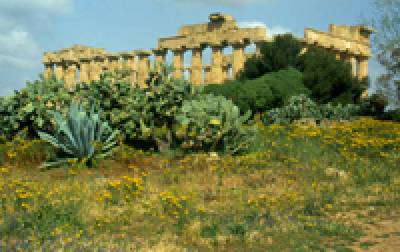This course explores fundamental themes in the archaeology and early history of the Mediterranean.

The Mediterranean is a unique theatre, the world's largest inland sea and the greatest extent of a distinctive type of environment on the planet. As the meeting point of Asia, Africa and Europe, it has formed a crucible of cultural change, interaction and large-scale developments from the emergence of modern humans up to, and beyond, Classical antiquity. This course explores fundamental themes in the archaeology and early history of the Mediterranean via ten seminars, each designed to encourage comparative, diachronic and inter-disciplinary perspectives. These are grounded in current archaeological and anthropological theory, and also incorporate art historical and historical approaches.
The current topics are:
- Defining and interpreting the Mediterranean
- Ecologies, resources and people
- The sea, islands and seafaring
- Investigative strategies
- Landscapes and communities
- Mediterranean urbanism
- Mediterranean polities: power and political identities
- Economies and trade
- Mediterraneanization: connections and interactions
- The Mediterranean past in the present
Aims of the course
- To debate major interpretative paradigms applied in the Mediterranean, and the region's historiography
- To provide advanced, well-rounded, inter-disciplinary training in the dynamics of the ancient Mediterranean
- To introduce students to the most important current research questions
- To understand the main investigative techniques applied in the Mediterranean, and the major data on which they depend
- To explore Mediterranean societies in global comparative perspective
- To prepare students to undertake original research in Mediterranean archaeology and history
Learning Outcomes
- ability in reading and debate through assessment and evaluation of alternative interpretations, and presentation of reasoned conclusions
- recognition of the linkages between data, methods and ideas
- application of the methods and theories of inter-disciplinary analysis
- skill in integrating a variety of evidence from different disciplines into overall interpretations
- proficiency in the setting out information and ideas clearly in written form
- preparation for designing and operationalising research topics in this field.
Teaching Methods
The course is taught through weekly seminars. Seminars have weekly recommended readings, which students will be expected to have done, to be able fully to follow and actively to contribute to discussion.
Course information
- Code: ARCL0142 (formerly ARCLG206)
- Credits: 15
- Coordinators: Corinna Riva
- Prerequisite:
- Handbook: open»
For registered students
Availability
- Not running in 2019-20
 Close
Close

